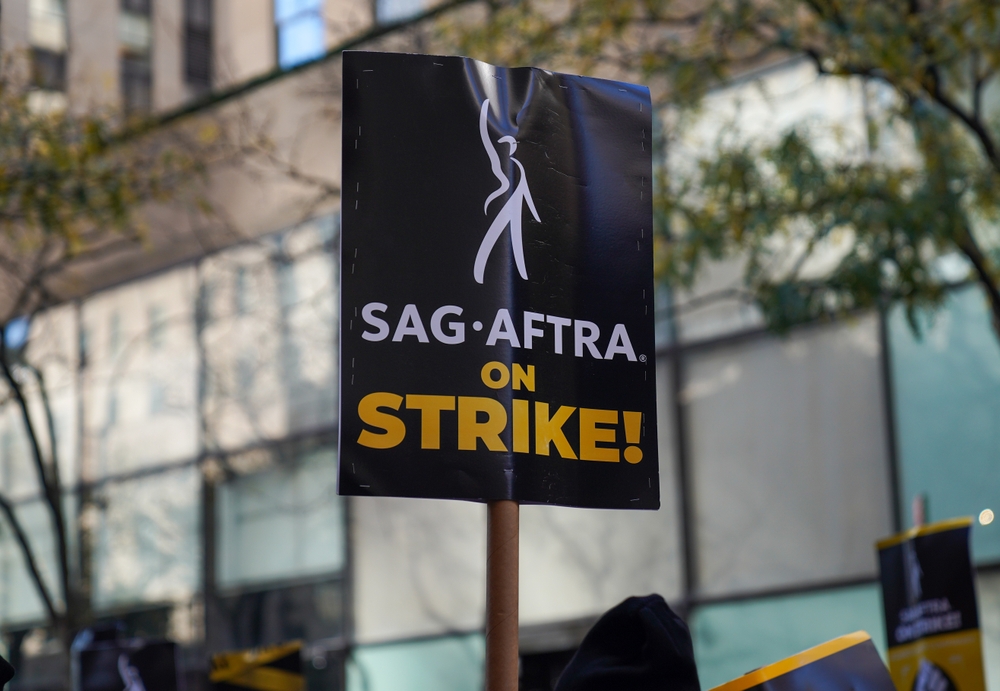In a unique move, the Hollywood union SAG-AFTRA has shifted from fighting the integration of generative AI in the games to entering an agreement with Replica Studios to moderate the usage.
The Hollywood Union, also identified as the Screen Actors Guild represents television, film and voice actors in a deal with the generative AI firm. The agreement allows Replica Studio to regulate AI technology usage in video games.
SAG-AFTRA Deal Dictates Rules of Engagement
The deal features rules dictating what Replica Studios can and cannot do with the voices replicating the members of the SAG-AFTRA union.
The agreement permits Replica to generate digital doubles using the actors’ voices that it would utilize in games through their consent. The deal requires voice talent to negotiate AI-replicated voices in games.
The deal empowers the voice talent to halt the continued utilization of the replicated voice in subsequent games and interactive media projects. SAG-AFTRA chief Fran Descher lauded the contract as providing the best safeguard for performers against unauthorized digital simulations. The protection extends to prohibit voice and performance imitation.
Duncan Crabtree-Ireland, the lead negotiator of SAG-AFTRA, hailed the agreement as realizing an informed consent that guarantees fair compensation for the voice and performance talent of the members.
Tuesday’s January 9 deal concludes the month-long wait following the union’s agreement with the television and film actors realized with the producers’ guild – AMPTP. The deal ended the 118-day strike.
Actors Questioning Safeguards Included in Deal Against AI Threats
Although the AMPTP deal yielded provisions for AI utilization, several members questioned the safeguards the deal offered the actors against the looming threat from AI.
SAG-AFTRA admitted investigating the likely impact of generative AI on the members’ livelihoods. The investigation traces back to 2018, as per a Mashable publication. Crabtree-Ireland revealed that the sub-groups of the SAG-AFTRA unanimously supported the deal realized with the Replica Studios.
The voice actor agreements are oriented towards ensuring the game developers utilizing the platform only access the licensed talent who consented to voice usage within the training data set. The deal avoids instances of the Wild West scenario where the AI platforms utilize unethical data-scaping approaches to replicate and synthesize actors’ voices without seeking permission.
The deal realized by SAG-AFTRA only involves Replica and excludes other large language models (LLMs). Such provisions are evident in other game publishers, including Riot Games parent Tencent and Ubisoft, embracing the new ACE technology from NVIDIA.
Unauthorized Training Prompts Lawsuit Against AI Models
The SAG-AFTRA deal comes when creators and creatives question the source of LLM’s outputs, alleging they deny them rightful compensation for their talents. The concern is surfacing across the entertainment industries, including films and television.
The contest was recently extended when the New York Times levelled charges against the LLM unicorn OpenAI, alleging it trained models using its content without seeking the necessary consent. The case by the legacy media company is set to shape AI versus copyright infringement disputes.
The interactive media segment of SAG-AFTRA recently pre-authorized a strike back in September for the game industry members. Its member talents express concerns regarding the generative AI threatening to erode their careers.
The interactive media talents are in advanced talks about locking a new agreement. Crabtree-Ireland revealed recently that he anticipates the deal with Replica Studios would prompt the video game firms to negotiate towards an imminent agreement.
Editorial credit: Leonard Zhukovsky / Shutterstock.com
